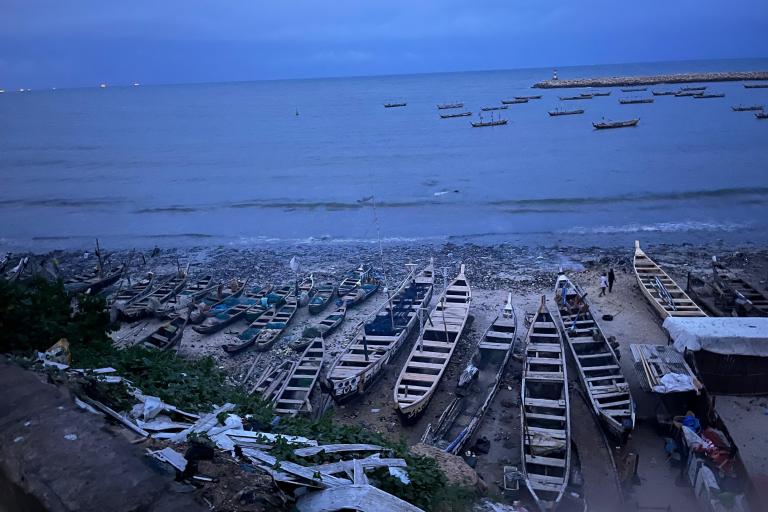The VFDM Project makes the Volta Basin more resilient to climatic hazards
From June 19 to 23, 2024, stakeholders and partners from across the Volta Basin gathered in Accra, Ghana, for the closing workshop of the project titled “Integrating Flood and Drought Management and Early Warning for Climate Change Adaptation in the Volta Basin (VFDM)".
The VFDM project, financed by the Adaptation Fund, was launched in June 2019 for an implementation period of five years. It brought together the WMO, the Volta Basin Authority (VBA), the Global Water Partnership West Africa (GWP-WA), and six Volta Basin countries (Benin, Burkina Faso, Côte d’Ivoire, Ghana, Mali, and Togo) in a collaborative effort to strengthen impact-based early warning systems for floods and drought events.
A survey conducted by WMO among its 193 Member countries revealed that globally, only 50% have operational Multi-Hazard Early Warning Systems (MHEWS), and this gap is notably significant in Africa. In the framework of WMO Congress and other constituent bodies meetings, National Meteorological and Hydrological Services (NMHSs) have requested support and committed to strengthening their EWS to save lives and reduce damage to property and the environment.
The project aimed at empowering the NMHSs and other competent authorities of the six riparian countries with robust and innovative solutions for disaster risk reduction and climate change adaptation, including capacity development for nature-based solutions and gender-sensitive participatory approaches.
Strengthening weather, climate, and hydrological services
The closing workshop was an opportunity to present the project's progress and encountered challenges, as well as review its outcomes. The VFDM project has contributed to:
- Improving and strengthening timely forecasting and warning systems at national, regional, and local levels, effectively reaching the populations concerned;
- Improving access to impact-based forecasts and warnings for at least 23 million people in six basin countries;
- Strengthening weather, climate, and hydrological services for key sectors, enabling coordinated decision-making and action.
More specifically, through the project implementation, it has been possible to:
- Map community vulnerability to flood and drought risks in the Volta basin in 60 pilot sites;
- Develop and deploy the VOLTALARM Flood and Drought Early Warning and Forecasting Platform;
- Develop the Regional Strategy for the Reduction and Integrated Management of Flood and Drought Risks in the Volta Basin;
- Periodically produce impact-based flood and drought forecasting and warning bulletins for the Volta basin;
- Develop the Action Plan for the effective participation of women and vulnerable groups in the Integrated Flood Risk Management and End-to-End Early Warning System for Flood Forecasting processes in the Volta Basin;
- Develop community initiatives for integrated flood and drought management;
- Train more than 750 young professionals through face-to-face workshops and training sessions.
The VFDM project was a successful application of integrating technical, institutional, social, and environmental aspects to flood and drought management. It helped address the Early Warnings for All initiative at the scale of the Volta basin, building on the existing national observation and forecasting capabilities, and integrating them into a decision-support system (the VOLTALARM platform) as well as community-based management of extreme events.
Giacomo Teruggi, VFDM Project Executive
It has been instrumental in supporting a transboundary, integrated, and tailored EWS for floods and droughts in the Volta Basin. Now that the project has come to an end, there is an urgent need to maintain the momentum for sharing, sustaining and scaling up its results and achievements.










